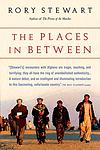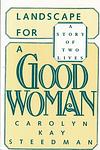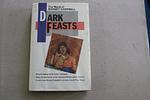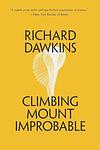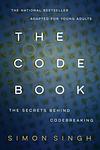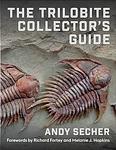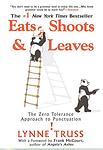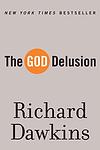The Greatest British "Nonfiction" Books Since 1980
Click to learn how this list is calculated.
This list represents a comprehensive and trusted collection of the greatest books. Developed through a specialized algorithm, it brings together 300 'best of' book lists to form a definitive guide to the world's most acclaimed books. For those interested in how these books are chosen, additional details can be found on the rankings page.
Genres
Countries
Date Range
Reading Statistics
Click the button below to see how many of these books you've read!
Download
If you're interested in downloading this list as a CSV file for use in a spreadsheet application, you can easily do so by clicking the button below. Please note that to ensure a manageable file size and faster download, the CSV will include details for only the first 500 books.
Download-
26. Staying Power: The History of Black People in Britain by Peter Fryer
"Staying Power: The History of Black People in Britain" is a comprehensive account of the African diaspora in Britain from Roman times to the present day. The book explores the various contributions of Black people to the British society, culture, and economy, challenging the traditional narrative that Black presence in Britain began with the Windrush generation. The author delves into the struggles, achievements, and resilience of Black people in Britain, offering a nuanced and detailed historical perspective.
-
27. The Age Of Wonder by Richard Holmes
"The Age of Wonder" explores the scientific and cultural advancements of the late 18th and early 19th centuries, known as the Romantic Age. Richard Holmes delves into the lives and achievements of prominent figures such as Joseph Banks, Humphry Davy, and William Herschel, who revolutionized fields like astronomy, chemistry, and botany. Through vivid storytelling, Holmes captures the spirit of curiosity, imagination, and wonder that defined this era, highlighting the profound impact it had on shaping our modern understanding of science and the world.
-
28. The Intellectuals And The Masses by John Carey
This book presents a critical examination of the attitudes of early 20th-century intellectuals towards the masses, exploring the disdain and fear that writers and thinkers of the time harbored against the growing literacy and political empowerment of the working class. The author scrutinizes the elitist views and often eugenic arguments that were used to justify the exclusion of the broader population from cultural and intellectual life. By delving into the works and personal correspondences of prominent figures, the text reveals a landscape of intellectual snobbery and challenges the romantic idealization of literary giants by exposing their contempt for the 'masses' they often deemed inferior.
-
29. The Invisible Woman by Claire Tomalin
The book is a compelling biography that uncovers the life of a woman who played a significant yet largely unrecognized role in literary history. It delves into the hidden narrative of the mistress and muse of a celebrated 19th-century author, exploring the challenges she faced as a woman in Victorian society. Her story, which includes clandestine love affairs, heartbreak, and resilience, is pieced together from scraps of historical evidence, shedding light on her influence on the author's work and revealing the sacrifices she made. The biography is a testament to the untold stories of women who have been overshadowed by the legacies of famous men.
-
30. The Places In Between by Rory Stewart
"The Places In Between" is a memoir by Rory Stewart about his journey on foot across Afghanistan in 2002, shortly after the fall of the Taliban. He travels from Herat to Kabul, encountering a variety of people and landscapes along the way. The book provides a unique insight into the culture and history of Afghanistan, as well as the challenges faced by the country in the aftermath of war. Stewart's writing is both lyrical and informative, making for a compelling read.
-
31. Landscape For A Good Woman by Carolyn Kay Steedman
This book is a poignant exploration of the author's working-class upbringing in post-World War II Britain, intertwining personal memoir with social history. It examines the complex relationship between mothers and daughters, the impact of poverty on women's lives, and the societal expectations placed on women in the mid-twentieth century. Through a blend of historical analysis and autobiographical narrative, the author reflects on her own experiences to challenge traditional narratives about the working class, revealing the emotional and psychological landscape that shapes a woman's identity and aspirations.
-
32. Concerning Computers, Minds, And The Laws Of Physics by Roger Penrose
In this thought-provoking book, a renowned physicist challenges the widely held belief that artificial intelligence can ever truly replicate the complexities of the human mind. Delving into the realms of mathematics, physics, and philosophy, the author argues that consciousness and understanding are fundamentally non-algorithmic processes that cannot be captured by machines. By examining the laws of physics and the nature of computation, he presents a compelling case for the unique qualities of human thought, suggesting that there are aspects of reality and our understanding of it that transcend what can be computed by mechanical means.
-
33. Nora by Brenda Maddox
This biography provides an in-depth look at the life of the woman who was the muse and wife of one of the 20th century's most influential writers. It explores her unconventional relationship with her husband, her role in his creative process, and how she challenged the norms of her time. The book delves into her personal struggles, her husband's literary fame, and the impact she had on his work, offering a nuanced portrait of a complex and often misunderstood figure who played a crucial role in the shaping of modern literature.
-
34. Reasons And Persons by Derek Parfit
This philosophical work challenges traditional notions of self-interest, rationality, and ethics, arguing that our conventional understanding of these concepts is deeply flawed. The author proposes that the boundaries of personal identity are less clear-cut than we might think, leading to profound implications for moral responsibility and the ethics of future generations. Through rigorous analysis and thought experiments, including the famous "repugnant conclusion," the book pushes readers to reconsider the basis of morality and the ways in which we consider the interests of ourselves and others, ultimately suggesting that reasons and persons are intricately connected in the fabric of ethical reasoning.
-
35. Dark Feasts: The World Of Ramsey Campbell by Ramsey Campbell
"Dark Feasts: The World Of Ramsey Campbell" delves into the eerie and captivating mind of renowned horror author Ramsey Campbell. This book offers a comprehensive exploration of Campbell's unique writing style, his inspirations, and the themes that permeate his works. Through interviews, essays, and analysis, readers are taken on a journey through the dark and unsettling worlds that Campbell has masterfully crafted, revealing the depths of his imagination and the impact he has had on the horror genre.
-
36. Climbing Mount Improbable by Richard Dawkins
In this thought-provoking exploration of evolutionary biology, the book delves into the intricate mechanisms of natural selection that have sculpted the complex, seemingly improbable forms of life on Earth. Using the metaphor of a mountain to represent the vast landscape of evolutionary possibilities, the author guides readers through a series of biological marvels, from the sophisticated optics of the eye to the elaborate structures of spider webs, demonstrating how gradual, step-by-step changes can lead to the astonishing diversity of life. The book illuminates the power of cumulative selection to produce highly adapted organisms and dispels the notion that such complexity requires intelligent design, reinforcing the marvels of evolution as a process of climbing peaks of adaptive fitness in the vast terrain of biological possibility.
-
37. The Age Of Extremes by Eric Hobsbawm
"The Age of Extremes" is a historical analysis that explores the tumultuous period of the 20th century, spanning from 1914 to 1991. This work delves into the profound transformations and conflicts that defined the era, including the two World Wars, the Cold War, the rise of fascism and communism, and the eventual collapse of the Soviet Union. The book examines the impact of economic crises, technological advancements, and social changes on global societies, offering insights into how these extreme conditions shaped the modern world and its political landscapes. The narrative combines a detailed account of historical events with a critical evaluation of their economic and cultural implications, providing a comprehensive overview of a century marked by both unprecedented progress and devastating turmoil.
-
38. A Year in Provence by Peter Mayle
"A Year in Provence" is a humorous and engaging memoir that chronicles a year in the life of a British couple who move to Provence, France. The book captures the charm and quirks of rural French life, as the couple adapt to their new home, navigate through the French bureaucracy, deal with local tradesmen, and savor the local cuisine and wines. The changing seasons and local customs are vividly described, providing a delightful and insightful view of life in Provence.
-
39. Nothing to be Frightened Of by Julian Barnes
This book is a memoir that explores the author's fear of death and his quest for meaning in life. It blends elements of autobiography, philosophy, and literary criticism, drawing on the author's personal experiences, his relationships with his family, and his thoughts on writers and philosophers who have influenced him. The narrative is marked by the author's wit, humor, and keen observations, offering a thoughtful and engaging exploration of mortality and the human condition.
-
40. In Siberia by Colin Thubron
"In Siberia" is a travelogue that takes the reader on a profound journey through the vast and enigmatic Siberian landscape. The author traverses the region, from the Ural Mountains to the Arctic coast, exploring its desolate beauty and the resilience of its inhabitants amidst harsh climates and historical upheavals. Along the way, he encounters remnants of the Soviet era, indigenous cultures clinging to their traditions, and the poignant traces of exile and punishment that have marked the land. The narrative is a rich tapestry of history, personal encounters, and vivid descriptions that capture the soul of a place often synonymous with remoteness and exile.
-
41. The Code Book by Simon Singh
This book is a comprehensive exploration of the history and science of cryptography, the art of secret writing. It delves into the evolution of encryption from ancient times to the modern digital era, examining how codes and ciphers have played pivotal roles in warfare, politics, and business. The narrative covers famous cryptographic milestones, including the Enigma machine of World War II and the development of public key encryption, while also addressing the challenges posed by the quest for privacy in the age of the internet. The book not only provides historical context but also introduces readers to the fundamental principles of cryptography and its significance in contemporary society.
-
42. It's Not How Good You Are, Its How Good You Want To Be by Paul Arden
This motivational guide offers a unique insight into the world of advertising and the mind of a creative genius. It challenges conventional wisdom with a plethora of pithy, often paradoxical advice, aiming to inspire readers to break the rules, think differently, and embrace failure as a necessary step towards success. The book is filled with bold typography, distinctive illustrations, and anecdotes from the author's own illustrious career, making it a compact but impactful read for anyone looking to excel in their professional life or personal endeavors by realizing that ambition and passion can be more critical than talent.
-
43. The Proper Study of Mankind by Isaiah Berlin
"The Proper Study of Mankind" is a collection of essays that explore the history of ideas, specifically focusing on political and philosophical thought. The book delves into the works and ideas of many notable thinkers, examining their influence on society and their relevance to contemporary issues. The author also discusses the importance of individual freedom, the conflicts between values, and the human capacity for making moral choices, offering profound insights into the nature of mankind and the challenges of the modern world.
-
44. Trilobite! by Richard Fortey
The book offers an enthralling journey into the ancient world of trilobites, the early arthropods that dominated the seas long before the age of dinosaurs. Through a blend of paleontology, geology, and evolutionary biology, the text delves into the fascinating life and times of these extinct creatures, which thrived for over 300 million years. The author's passion for the subject shines through as he explores the significance of trilobites in understanding Earth's history and the development of life, all the while painting a vivid picture of the prehistoric oceans that were once teeming with these complex and varied life forms.
-
45. The Hare with Amber Eyes: A Family's Century of Art and Loss by Edmund de Waal
This book is a family memoir that traces the journey of a collection of miniature Japanese sculptures, called netsuke, through generations of a wealthy Jewish family. The narrative delves into the family's rise to prominence in the late 19th and early 20th centuries, their survival during the Nazi regime, their post-war struggles, and their eventual decline. The author uses the netsuke as a lens to explore the themes of art, loss, and family legacy.
-
46. Passage To Juneau by Jonathan Raban
In "Passage to Juneau," the author embarks on a solo journey by boat along the Inside Passage from Seattle to Juneau, Alaska. The narrative intertwines the challenges of navigating the treacherous coastal waters with personal reflections and historical insights. As the voyage progresses, it becomes a profound exploration of the landscape, maritime history, and the author's own internal struggles, particularly dealing with the sudden death of his father and the unraveling of his marriage. The book offers a meditative look at the interplay between the human psyche and the vast, imposing natural world.
-
47. Orwell And Politics by George Orwell
The book is a comprehensive anthology that brings together a selection of essays, letters, and excerpts from novels, showcasing the author's profound political thought and his unwavering concern for social justice, freedom, and the abuses of political power. It provides insight into the author's evolving political ideology, from his early days as a colonial policeman in Burma to his experiences in the Spanish Civil War, which shaped his views on totalitarianism and socialism. The collection serves as both a reflection of the tumultuous political landscape of the 20th century and a testament to the author's enduring influence as a political writer and thinker.
-
48. Don Quixote's Delusions by Miranda France
"Quixote's Delusions" is a travel memoir that explores the contemporary Spanish landscape through the lens of the classic novel "Don Quixote." The author embarks on a journey through Spain, retracing the steps of the novel's protagonist while examining the enduring influence of the tale on the Spanish culture and psyche. Along the way, she encounters a diverse cast of characters and experiences that reflect the quixotic blend of reality and fiction, revealing the ways in which the spirit of Don Quixote continues to resonate in modern Spain. Her reflections offer insights into the country's history, traditions, and the everyday lives of its people, all while pondering the universal themes of idealism, madness, and the pursuit of dreams.
-
49. Eats, Shoots and Leaves by Lynne Truss
This book is a humorous, yet educational, exploration of punctuation in the English language. The author uses wit and sarcasm to highlight the importance of correct punctuation, demonstrating how it can drastically change the meaning of a sentence. It provides examples of punctuation errors and their hilarious consequences, while also offering practical advice on how to avoid such mistakes. The book is a spirited call to arms for grammar enthusiasts, emphasizing the necessity of preserving the clarity and precision in writing that proper punctuation provides.
-
50. The God Delusion by Richard Dawkins
This book is a well-known critique of religion, arguing that belief in a supernatural creator significantly lacks empirical evidence. The author asserts that faith encourages wars and fosters fanaticism. He also challenges the idea that morality can only come from religion, suggesting instead that humans possess innate empathy and cooperation. The book also explores the roots of religion, explaining its evolution as a byproduct of our tendency to assign agency to inanimate objects and forces. Ultimately, the author encourages atheism and a sense of awe derived from science and the natural world.
Reading Statistics
Click the button below to see how many of these books you've read!
Download
If you're interested in downloading this list as a CSV file for use in a spreadsheet application, you can easily do so by clicking the button below. Please note that to ensure a manageable file size and faster download, the CSV will include details for only the first 500 books.
Download



